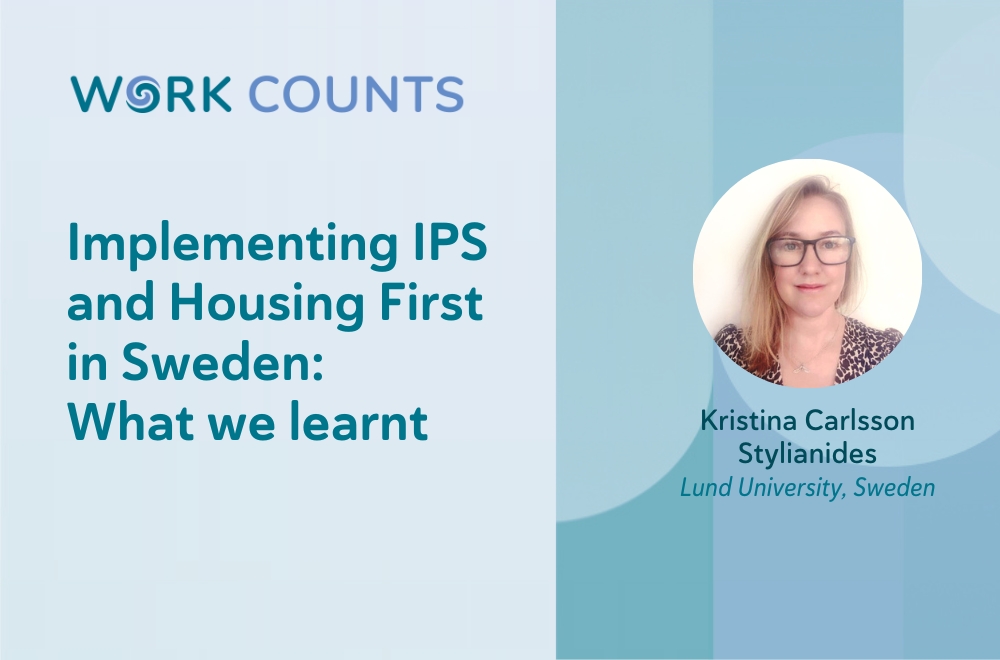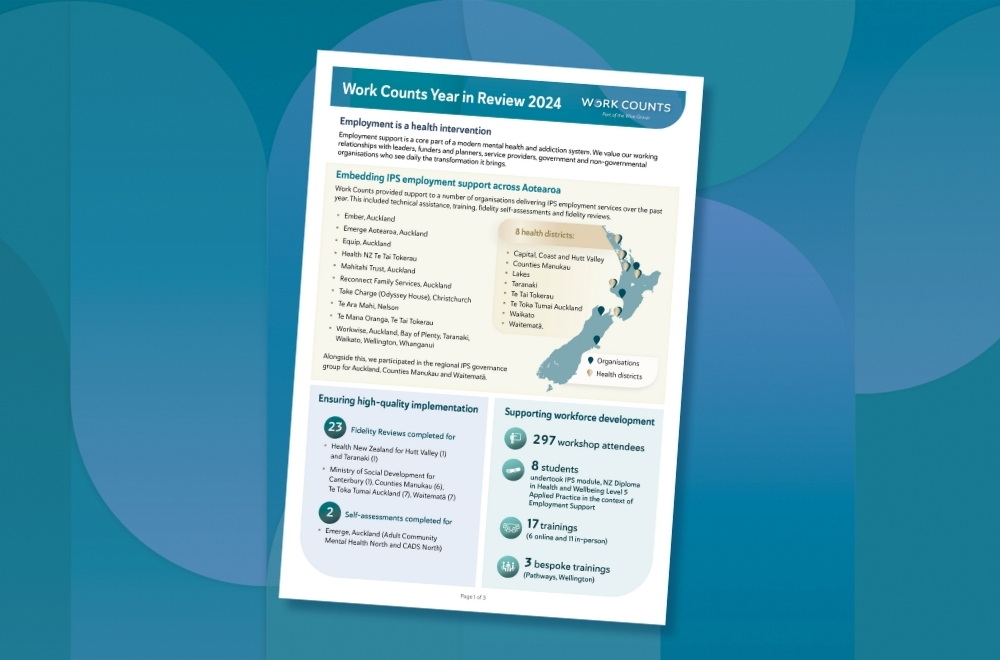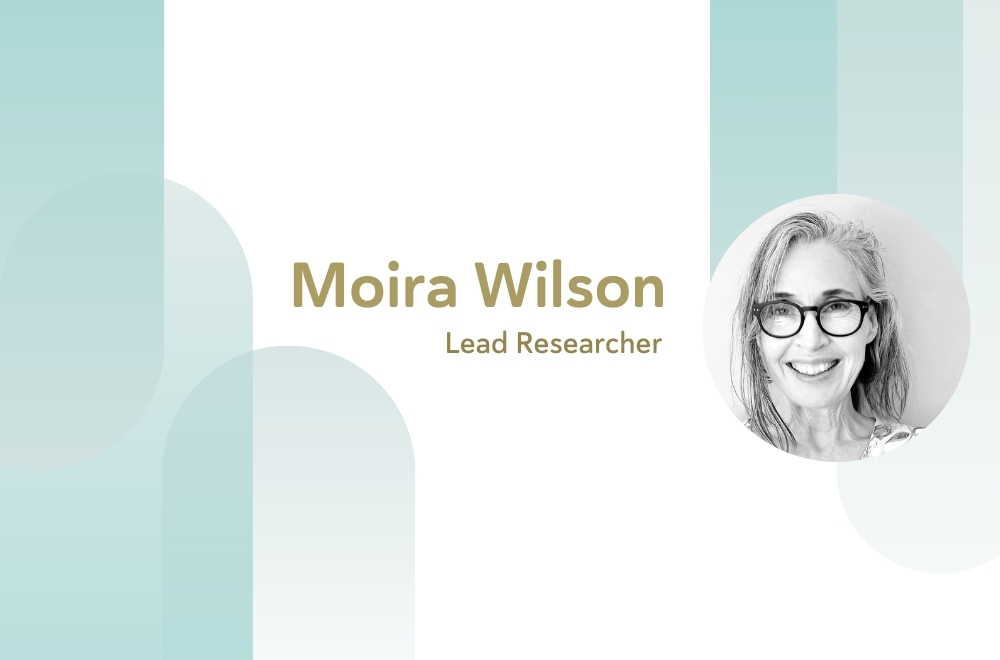Enabling access to IPS employment support in Aotearoa New Zealand in 2022 and beyond
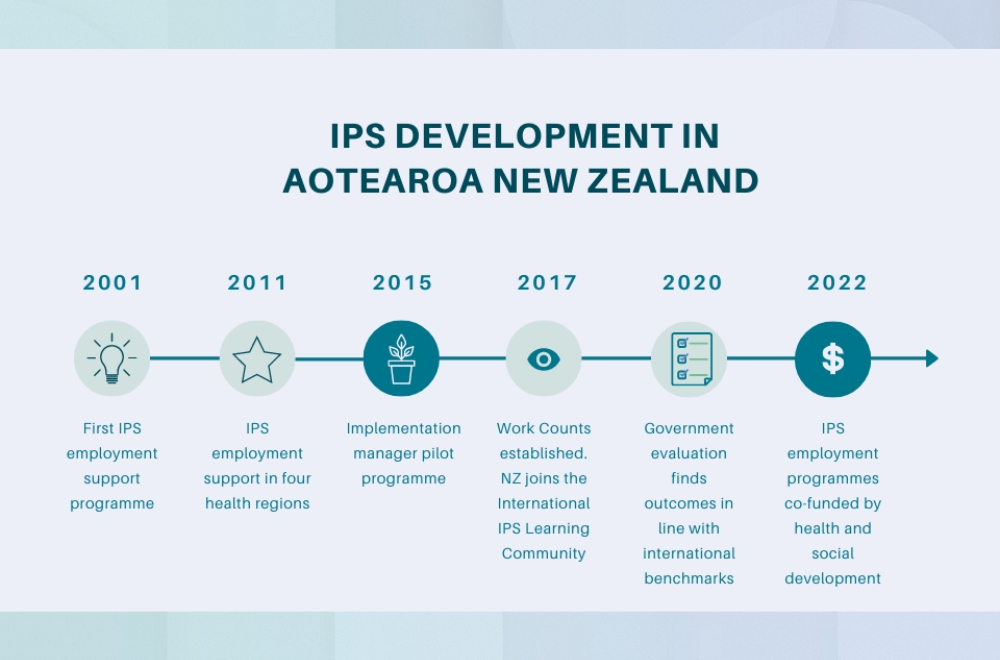
Published:
March 18, 2022
Library type:
Keywords:
While access to IPS employment support in New Zealand is increasing, nearly half of current health regions still have no access to IPS. It is concerning that many people are missing out on evidence-based mental health and addiction employment support services .
The Aotearoa New Zealand context
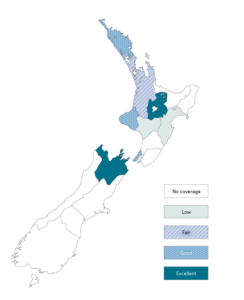
As we look ahead to the implementation of major health and disability system reforms this year, it’s important to remind ourselves of the Aotearoa New Zealand context and the value of increasing access to IPS employment support as part of transforming the health and disability system.
Whilst the country has a developed and relatively good economy, it is acknowledged that there are ongoing economic, health and social inequities between Māori and Pacific peoples, compared to Pākehā New Zealanders and on-going inequities, particularly for people in contact with secondary mental health and addiction services.
Equity of access to and outcomes from IPS employment support is paramount to honouring Te Tiriti o Waitangi and must be central to the scale up and implementation of IPS in New Zealand.
IPS programme delivery since 2001
IPS employment programme delivery began in New Zealand in 2001, largely funded by local health budgets. Early developments were led by champions from within non-government employment services and local health funders, rather than mandated from central government.
The result of this local leadership means that IPS employment programmes are well-established in some health regions, and completely lacking in others (see map). Access therefore has always been, and remains, patchy and inequitable.
While access to IPS employment support is increasing, in 2022 nearly half of current health regions still have no access to IPS. This is concerning given that many of these regions encompass high levels of Māori and Pacific populations and rural communities. Many people are missing out on evidence-based mental health and addiction employment support services.
The journey to scale up IPS
In the past five years following a successful IPS implementation manager pilot and joining the International IPS Learning Community, New Zealand has embarked on an intentional scale-up process (see timeline).
As New Zealand’s IPS centre of expertise, Work Counts supports the delivery of high-fidelity IPS implementation, including capacity and capability of the workforce; alongside this, the IPS national steering group brings a formal process of joint working across government agencies. In 2019, Honouring Aspirations, a plan to scale up IPS employment support, was developed and agreed.
Workwise, a non-government provider of employment support services, was the first organisation to pioneer the development of IPS, and there are now nine other government and non-government providers of IPS employment support.
Until 2017, IPS programmes were largely funded by health budgets, but increasingly the Ministry of Social Development is investing in IPS programmes, both in secondary mental health and addiction services and in youth community-based mental health services. This year also saw the first cross-government funding of IPS programmes.
As at February 2022, there are 86.3 full-time equivalent employment consultants working across 69 clinical mental health and addiction teams, with the size of programmes in each region varying from one to 13 employment consultants.
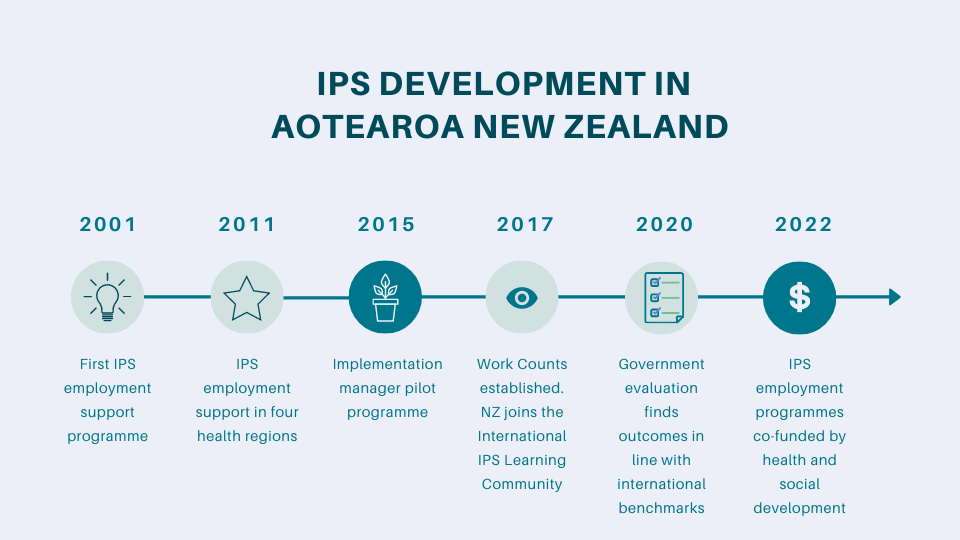
Employment support in the Far North – Hemi’s story
In 2017, IPS employment support was set up in the far north, integrated under a wider programme to reduce the harm caused by methamphetamine. Initially there were two employment consultants and now there are eight working across six clinical teams, with joint funding from the Ministry of Social Development and the local health authority, Northland District Health Board.
The Northland Age recently published an article on the IPS programme, stating “this degree of intensive wraparound support is unprecedented in the Far North.”
The article profiled the employment journey of Hemi Rihari (37 years).
“I’ve had lots of jobs over the last two years, but they haven’t lasted long,” Hemi said.
The employer, Waste Management, came to the table “without preconceptions and allowed Hemi’s work to speak for itself,” said the employment consultant. Waste Management manager, Shane Robbertsen said “Hemi has been very reliable, turns up, and does a good job. He gets on well with his colleagues and has even picked up work on Saturdays, which means he is being exposed to other areas of the business and expanding his skill set.”
Now in permanent work, Hemi has set himself some financial goals and is putting aside weekly savings.
“I want to get a car so I can get myself to work, and I want to build a small place to live on some family land.”
Find out more
See related article about the current state of IPS employment support in New Zealand.
Citations
Source: The Northland Age, 19 December, 2021
Work Counts (2022). IPS employment support integrated with secondary mental health and addictions services (map).
